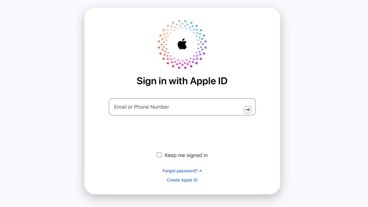Apple, Nokia resolve patent dispute, Apple agrees to pay for licenses
Nokia, the world's largest smartphone maker since 1996, issued a press release early Tuesday announcing the signed patent license agreement with Apple.
"The agreement will result in settlement of all patent litigation between the companies, including the withdrawal by Nokia and Apple of their respective complaints to the US International Trade Commission," the statement read.
As part of the agreement, Apple will make a one-time payment to Nokia, in addition to on-going royalties. The specific details of the agreement remain confidential. AppleInsider has reached out to Apple for comment, but has yet to hear back.
"We are very pleased to have Apple join the growing number of Nokia licensees," said Nokia CEO Stephen Elop. "This settlement demonstrates Nokia's industry leading patent portfolio and enables us to focus on further licensing opportunities in the mobile communications market."
In the statement, Nokia pointed out that it has invested approximately EUR 43 billion in research and development over the last 20 years, building up a patent portfolio with over 10,000 patent families. The agreement is expected to have a "positive financial impact" on Nokia's quarterly earnings.
Legal pundit Florian Mueller viewed the settlement as a favorable outcome for Apple shareholders, despite the fact that Apple has to pay. According to Mueller, the agreement comes as a "sweet defeat" for Apple because competitors building Android-based devices will also likely have to pay Nokia, possibly paying more per-unit because rival handset makers may have less intellectual property to use as bargaining chips.
"So from a competitive point of view, I don't think Apple loses much. On the bottom line its profitability may even benefit from this because Apple's margins face no greater threat than Android-style commoditization of smartphone technologies," Mueller said.
The two companies became entangled in a legal dispute in 2009 when Nokia sued Apple alleging infringement of ten wireless technology related patents. At the time, the case was characterized as a battle between "two Goliaths" and was expected to last for years.
Since 2009, the two companies have continued to trade lawsuits. Most recently, the ITC ruled that it would conduct a review of two patents in Nokia's infringement case against Apple, while dropping three patents from the investigation. Apple's case against Nokia with the ITC had been due to be decided on June 24.
The Finnish handset maker is currently undergoing a transitional phase from its Symbian platform to Microsoft's Windows Phone. Microsoft is reportedly paying Nokia billions of dollars to make the switch.
"Nokia and Microsoft will combine our strengths to deliver an ecosystem with unrivaled global reach and scale. It's now a three-horse race," said Elop, referring to rivals Apple and Google.
Some analysts believe, however, that Apple has a golden opportunity while Nokia readies its first Windows Phone devices. Mike Abramsky of RBC Capital Markets believes the Nokia-Microsoft partnership may actually accelerate share gains for Apple.
Though Nokia has long held the crown as the top global smartphone maker, a recent prediction from a Japanese market analysis firm sees Samsung and Apple overtaking the company by the end of this quarter. Earlier this year, Apple surpassed Nokia to become the world's largest mobile phone maker in terms of revenue.
 Josh Ong
Josh Ong










 Mike Wuerthele
Mike Wuerthele

 Malcolm Owen
Malcolm Owen
 Chip Loder
Chip Loder

 William Gallagher
William Gallagher
 Christine McKee
Christine McKee
 Michael Stroup
Michael Stroup






